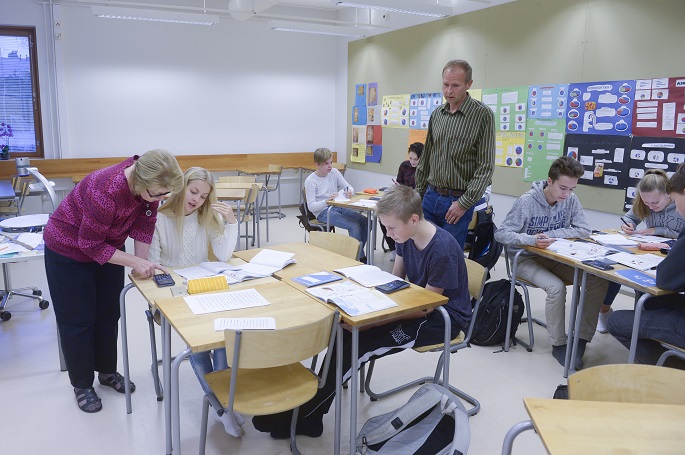Compulsory education to be extended to 18
Published : 16 Oct 2020, 23:16
Updated : 17 Oct 2020, 01:23
The government on Thursday submitted a proposal to parliament for extending compulsory education until the age of 18, said the education and culture ministry in an official press release.
At the same time, upper secondary education would be made free of charge for students in the extended compulsory education.
The reform is scheduled to come into force on 1 August 2021. Young people finishing their comprehensive school education in spring 2021, mainly those born in 2005, would be the first to be affected by the reform.
“Despite numerous development measures, around 16 per cent of young people in this age group still fail to complete an upper secondary qualification. It is no longer possible to get by in life and in working life with basic education alone. Now is the time to update compulsory education to meet the requirements of the 2020s. With the extension of compulsory education, every young person will be guaranteed an upper secondary qualification,” said Education Minister Li Andersson.
According to the legislative proposal, compulsory education would end when a young person reaches the age of 18 or has completed an upper secondary qualification (the upper secondary school syllabus and matriculation examination or a vocational upper secondary qualification).
In future, education and daily meals (as at present) would be free of charge, along with textbooks and other materials needed for teaching, tools, work clothes and materials, and the five tests required to complete the matriculation examination, including retakes of failed tests. Travel to school for journeys of seven kilometres or more would also be free of charge at the upper secondary level.
Special equipment needed for studies, such as musical instruments and sports equipment, would remain the responsibility of the student.
Education would continue to be free of charge until the end of the calendar year in which the student reaches the age of 20. The period of free education could also be extended for justified reasons, for example due to illness or to allow the student to complete education during the transition phase.


